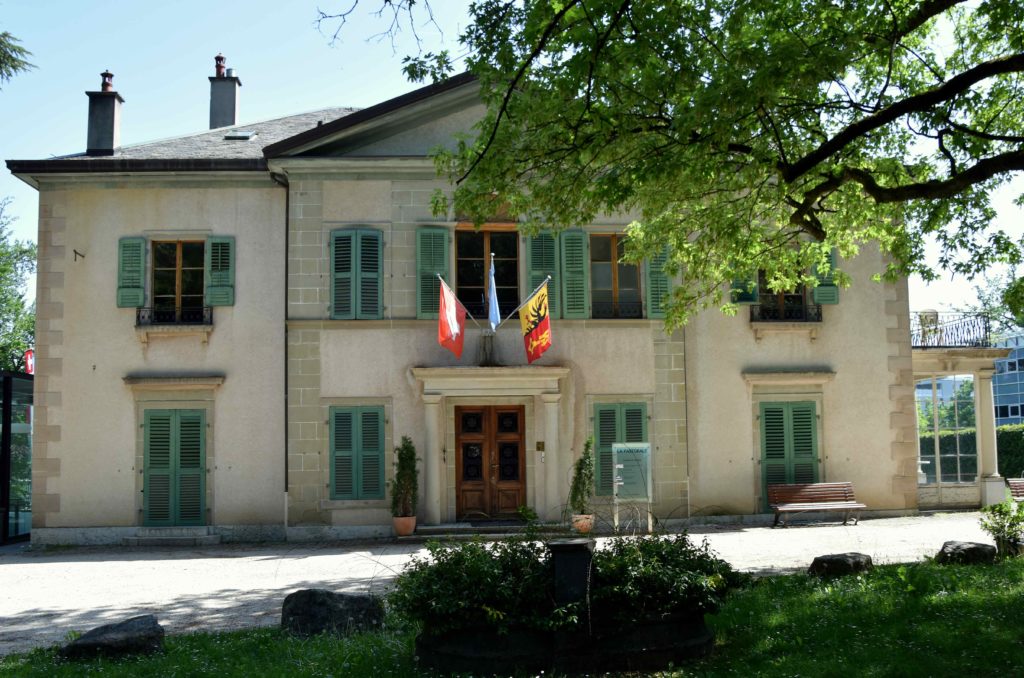Services for NGOs
The CAGI assists international non-governmental organizations (NGOs) already established or wishing to do so in the Geneva region.
- Home
- Services
- Services for NGOs
- Direct taxes
Direct taxes
Associations and foundations are subject to cantonal and municipal tax (ICC) and direct federal tax (IFD) on profits and capital, as well as additional property tax for those who own real estate located in the canton of Geneva.
Calculate the amount of tax on the website of the canton of Geneva
Under certain conditions, legal entities pursuing public utility or public service goals may be exempted from:
- direct federal tax , governed by the Federal Law on Direct Federal Tax (LIFD) of December 14, 1990. The exemption is granted on the profit only, for an indefinite period of time with the possibility of revision at any time.
- cantonal and municipal tax , governed by the Law on the taxation of legal persons (LIPM) of September 23, 1994. The exemption is granted on the profit and the capital for an indefinite period with the possibility of revision at any time (change from a fixed period of 10 years to an indefinite period since November 1, 2015).
NGOs can jointly apply for exemption from direct federal tax and cantonal-municipal tax. The fact of benefiting from an exemption at the cantonal level does not automatically entail the exemption at the federal level.
Procedure
This request must be made in writing and addressed to the Direction des affaires fiscales de l’Administration fiscale cantonale (Case postale 3937, 1211 Geneva 3).
It must include the tax exemption request form, statutes of the association in French as well as all required documents indicated in the form.
The procedure takes about 3 months after receipt of all the documents. The tax administration makes the final decision on the exemption. If the exemption is refused, the interested party can contest it.
Conditions
The statutes must imperatively mention a non-return clause in the event of the dissolution of the association:
Model of statutes
CAGI offers template statutes of association intended for any non-profit entity wishing to establish itself in Geneva or in the surrounding area in the form of an association under Swiss law.
- “Should the association/foundation be dissolved, the available assets should be transferred to a non-profit organization pursuing public interest goals similar to those of the institution and likewise benefiting from tax exemption. Under no circumstances should the assets be returned to the founders or members. Nor should they use a part or a total of assets for their own benefit.”
The articles of association must also mention the following two compensation clauses:
- “The Board members act on a volunteer basis and as such can only be reimbursed for their actual expenses and travel costs. Potential attendance fees cannot exceed those paid for official commissions. For activities beyond the usual function, each Board member is eligible for appropriate compensation.”
- “Paid employees of the association/foundation may only sit on the Board in an advisory capacity.”
It is required that at least one member of the Board or member of the Executive team (eg. executive director, Secretary General) with signatory powers must be a Swiss citizen or be domiciled in Switzerland.
Organizations that benefit from an exemption are still required to file a tax return. (See: “Fiscal Guide 2024 for associations and foundations” in French).
One of the main advantages of the tax exemption is that individuals or legal entities who make a donation to an NGO benefiting from tax exemption for public utility or public service purposes and which is headquartered in Switzerland will be able to deduct this donation from their tax return. Geneva tax payer individuals can deduct up to a limit of 20% of their net income and legal entities up to 20% of their net taxable profit.
Donations in cash or in assets (movable or real estate assets, receivables, intellectual property rights) are deductible. However, statutory contributions such as membership fees and other compulsory payments are not deductible, nor are donations provided in the form of work.
The NGO must establish, for the attention of the donor, a donation receipt when the donation amount is superior or equal to CHF 300.
Some institutions are exempt from inheritance tax. According to Article 6 of the Law on Inheritance Tax of November 26, 1960:
“Are exempt from all duties, for any inheritance, heirs’ institutions, legacies and other gifts due to death to legal entities having their seat in Switzerland, which are exempt from taxes on profits and capital, because of their public service, public utility, religious purpose, or to the Confederation, the cantons, the communes and their establishments.”
Some institutions are exempt from registration fees on certain acts or transactions (cf. Law on registration fees (DE) of 9 October 1969).
For instance, in the case of donations, “donations to legal entities headquartered in Switzerland which are exempt from taxes on profits and on capital, because of their public service, public utility or religious purpose, or to the Confederation, the cantons, the municipalities and their establishments, are exempt from all duties” (cf. art. 28 LDE).
In case of a promise to purchase (art. 51 LDE), a purchase (art. 42 LDE), an exchange (art. 74 LDE) of real estate or a mortgage loan (art. 89 LDE), the exemption from registration fees is granted when the operation is carried out for a public utility, public service or even religious purpose by a legal entity headquartered in Switzerland, which is exempt from taxes on profits and on capital, because of its public service, public utility or religious purpose, or by the Confederation, the cantons, the municipalities and their establishments.
In the case of real estate purchase and exchange, the exemption is maintained if the change of affectation of the property has not taken longer than 2 years and if its new affectation has lasted at least 3 years.
Useful documents

Tax exemptions

MORE INFORMATION ON THE WEBSITE OF THE CANTON OF GENEVA :
Other useful information for NGOs
Annual legal requirements
VAT
Intellectual property
Pro bono legal assistance
Registration with the Register of commerce
CAGI services
for NGOs and Permanent Missions

Contact
By appointment only: Monday to Friday from 9 am to 12 pm / 2 pm to 4:30 pm
La Pastorale: Route de Ferney 106, 1202 Genève
Access by public transports (TPG): Line 5: stop Intercontinental; lines 8, 20, 22, 60: arrêt Appia. No parking on site.
Founded by the Swiss Confederation and the Republic and Canton of Geneva, the International Geneva Welcome Centre is the single entry point for the support and integration of employees of International Geneva and their families, NGOs and visiting delegates.
